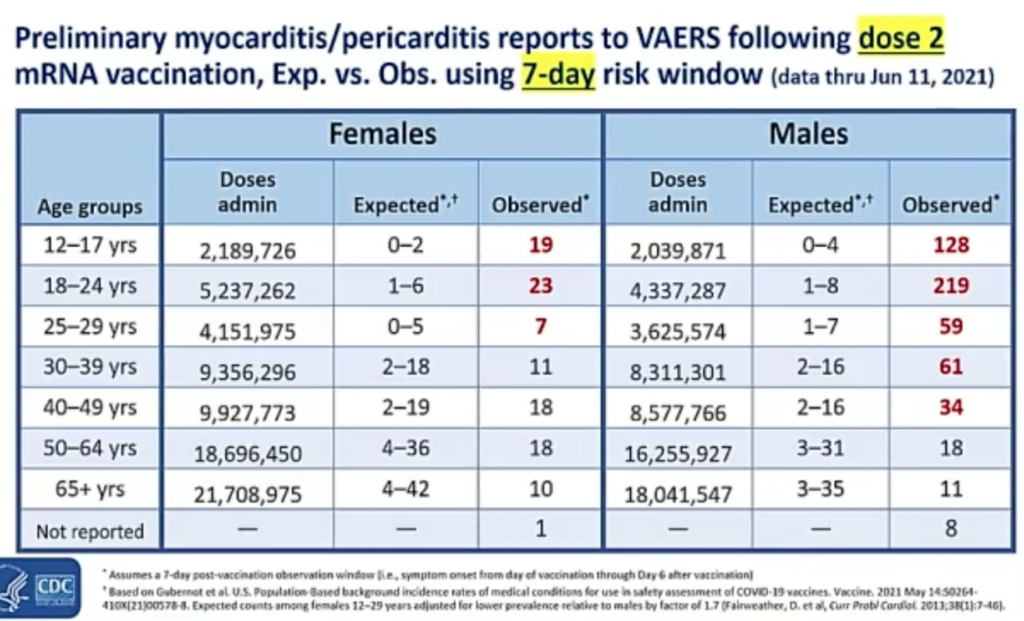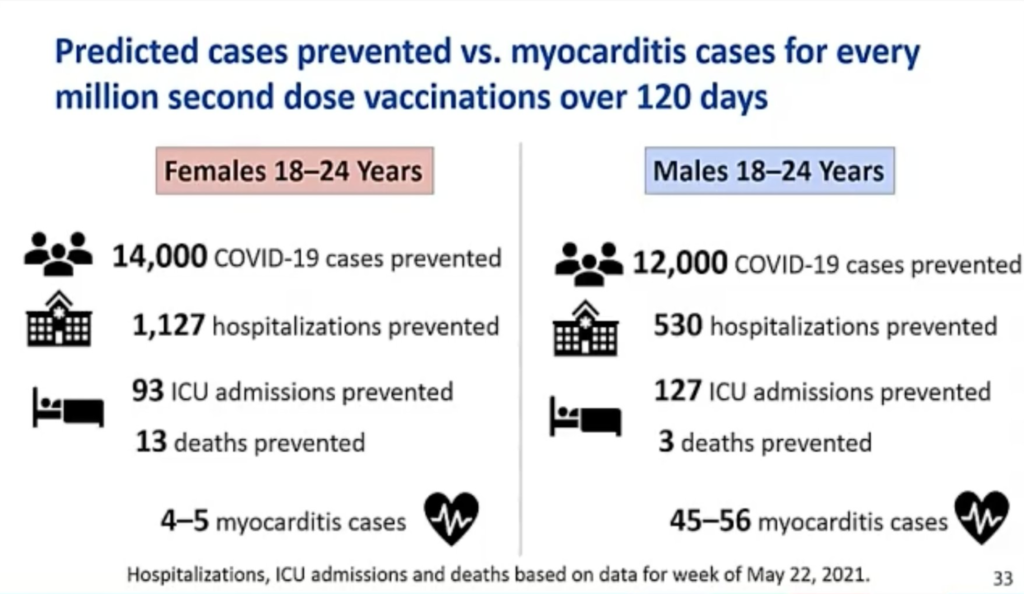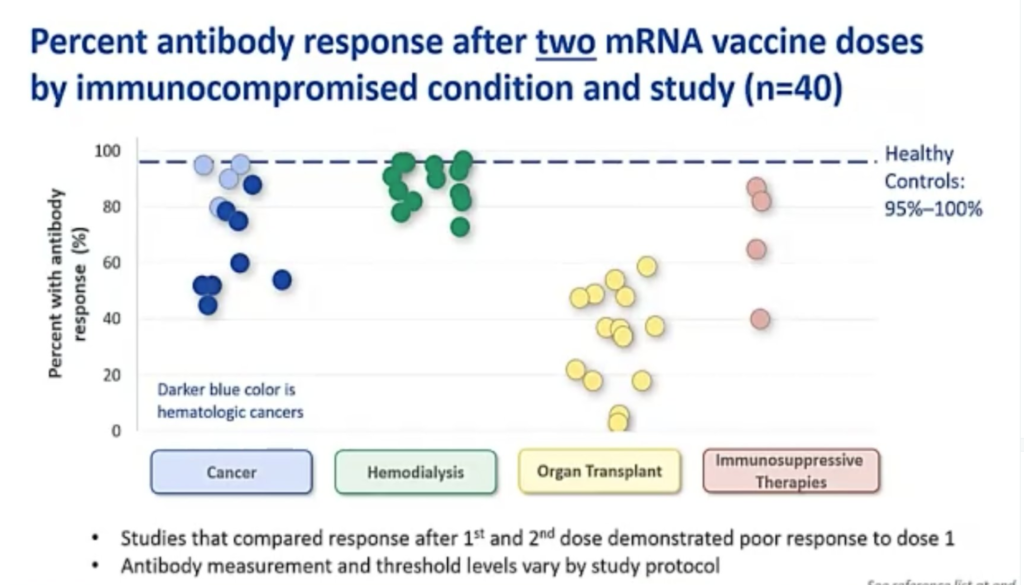Long COVID
This paper makes a strong case that re-activated Epstein-Barr virus is involved in most Long COVID cases.
This paper says that women are 2.7x more likely to get Long COVID as men. 44% of women and 24% of men in this study (in Norway) had symptoms.
Vaccines
This Twitter thread, which is a recounting of an US CDC Advisory Committee on Immunization Practices (ACIP) meeting, says that traditional (i.e. non-COVID) myocarditis & pericarditis in children/youths is usually more severe than what they’re seeing after vax. They are seeing elevated rates after vax, with more cases after dose 2 than dose 1, mostly in males.

The numbers are small, but it looks like there are about twice as many cases per capita with Moderna as with Pfizer.
The risk-benefit equation still is strongly in favour of getting vaccinated:

Also from that ACIP meeting, this interesting graphic on how well immunosuppressed people respond to a second vax by why they are immunosuppressed:

I’m guessing that it matters which immunosuppressive therapy you are on. For example, with multiple sclerosis immunosuppressives, ocrelizumab makes the vaccine pretty worthless, while cladribine does not. (Organ transplants suck rocks, dialysis is pretty okay, blood cancers suck, other cancers are pretty okay, in case the picture isn’t clear.)
The ACIP meeting brought up the question of boosters. It’s pretty clear that nobody needs boosters now, but people might need them in the future. CDC asked ACIP for guidance on how to decide when boosters would be needed and it sounds like everyone sort of looked blank and looked at each other, much like, “I dunno, what do you want to eat?”
Helen Branswell, the author of the ACIP Twitter thread above, pointed out that people are complaining about vaccine uptake in the US, but given that vaccination only started in December, the uptake so far is “quite incredible”. Useful perspective. (And Go Canada!)
This study and this study both show that one dose of either AZ or Pfizer work really well to prevent hospitalization in the elderly.
This study showed that the rate of household transmission dropped in about half after vaccination with Pfizer or AZ. Even one dose helps — almost all (93%) of the people in the study had only gotten one dose.
